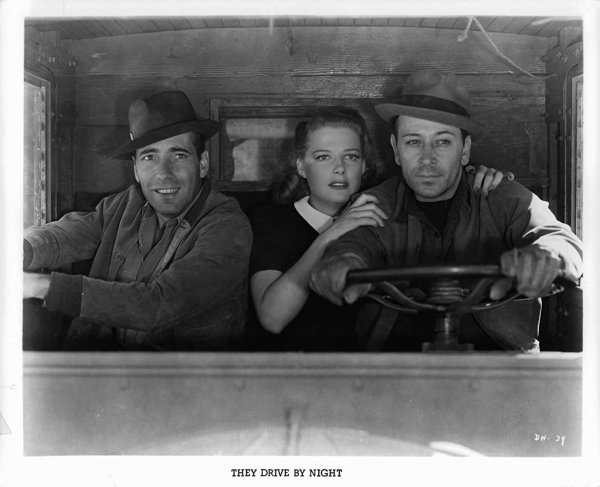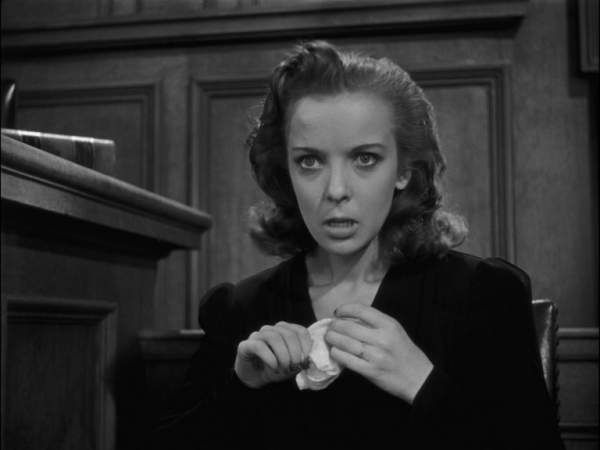- Messages
- 13,528
- Location
- Germany
The Chase (1966)
Robert Duvall looks like Tom Hagen and Marlon Brando like a Godfather.
Robert Duvall looks like Tom Hagen and Marlon Brando like a Godfather.
It might have been if George Lucas hadn't sabotaged his own movies and made them worse with each subsequent Not-So-Special-Edition release.Caught the original Star Wars trilogy on TNT today. Always a pleasure!
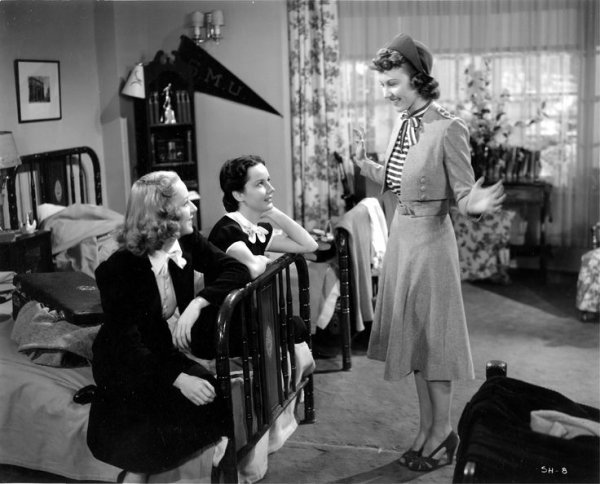
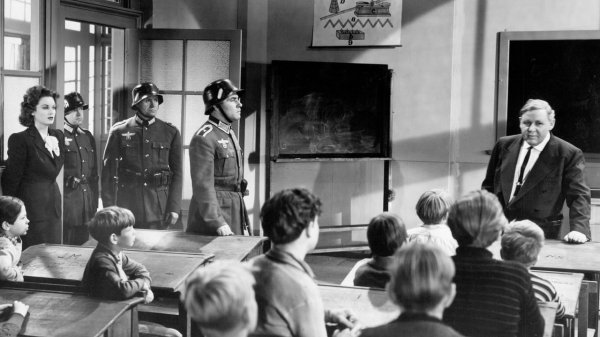
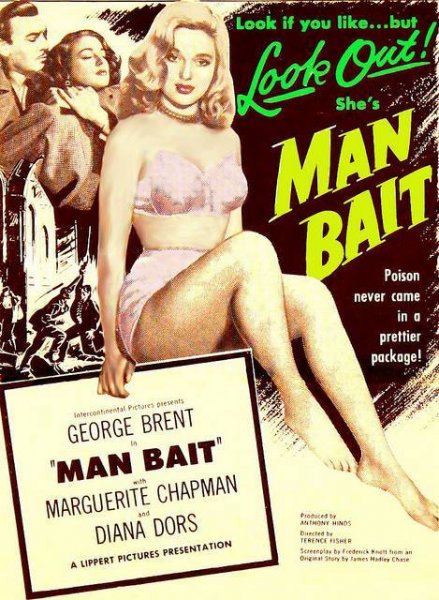
View attachment 260131
This Land is Mine from 1943 with Charles Laughton, Maureen O'Hara, Walter Slezak, George Sanders and Kent Smith
The word propaganda, like so many things, has been tainted by its association with Nazi Germany, but its core meaning - promoting a particular, usually political, point of view - is also part of what we call freedom of speech.
It's dangerous when the state - as in Nazi Germany - controls speech and promotes only its point of view, hence the taint, but in a free society, where everyone advocates for his or her own beliefs, everyone, effectively, is propagandizing for his or her own viewpoint and ideas.
So it is as a compliment that I say, This Land is Mine is outstanding propaganda.
"Some town" in Europe is occupied by the Germans, but as the Germans did in several places, they wanted this to be a "soft" occupation where they collaborate with willing locals to leave a patina of self-governance in place. Many opportunistic and many just understandably scared locals go along, but a few resist by printing an underground newspaper while others physically resist through sabotage.
Cowardly mamma's boy and schoolteacher Charles Laughton plays by the new rules and looks the other way until his hero, the school's headmaster, is arrested for promoting "unacceptable" ideas at the school. Later, the headmaster is chosen as one of ten hostages to be executed by the Germans in retaliation for a murdered-by-the-resistance German soldier.
Laughton, meanwhile, stumbles upon the body of a collaborator, George Sanders, whose conscience drove him to suicide after he turned his fiancé's brother in for sabotage and the brother is killed trying to avoid arrest. Laughton, having found the body, is then arrested and charged with the murder of the collaborator. Adding to the complications, the collaborator's fiancé is a school teacher, Maureen O'Hara, with whom Laughton has been secretly in love.
This brings Laughton into direct conflict with the town's Nazi overseer beautifully played by Walter Slezak. Slezak is no cardboard Nazi thug. He's an educated man who quotes and clearly respects the leading philosophers of Western Civilization; a man who would prefer not to use force, not to kill the innocent. But he is also a shrewd and, when necessary, ruthless Nazi willing to kill ten innocent locals in retaliation for one murdered German soldier - order must be maintained.
Slezak doesn't want to have Laughton put on trial, but if he must be tried and found guilty of murder to maintain the fiction that the collaborator's death wasn't a suicide, then, so be it. Having the public know that collaborators are committing suicide over guilt is not in the Nazi's interest.
It takes two thirds of this better-than-average WWII propaganda film to get to this point, but then it only gets much, much better.
With his fears almost realized, Laughton, on trial in an all but rigged court for a murder he didn't commit, finds his inner fortitude, in part, when he sees, from his jail cell awaiting trial, his former headmaster executed in the prison's yard by the Nazis.
In dramatic courtroom fashion, with the prosecutor screaming to have his defense speech shut down, Laughton - disheveled, a bit nervous, but clearly not scared anymore - quietly and methodically exposes and dissects the evil of the Nazi occupation, the hypocrisy of the collaborators and his own cowardice to date.
It's not only a speech of hammering logic, it's a tour-de-force acting performance as you forget everything else as this fat, rumpled and awkward man single-handedly eviscerates all the evil fictions holding the town in its grip. And just when you think he has nothing left, this shy man, who's never expressed romantic love or passion for another in his entire life, in open court, declares his love for O'Hara and, at this point, you realize she's a lucky woman.
But there's still a little more movie left. Despite being knocked back on their heels with their immorality exposed by Laughton, Nazis are gonna Nazi, so they respond with brutal force. And Laughton is given one last moment before the inevitable, which he uses to teach his students the value of keeping the ideals of freedom and individual liberty alive in your head and heart even if all around you others are trying to stomp them out. Basically, he teaches that a book can be burned, but an idea can't be removed from your mind.
Is it propaganda? Sure, and This Land is Mine should be darn proud of it.
I owe a hat tip to @Worf for an outstanding recommendation.
 John Lofgren Monkey Boots Shinki Horsebuttt - $1,136 The classic monkey boot silhouette in an incredibly rich Shinki russet horse leather.
John Lofgren Monkey Boots Shinki Horsebuttt - $1,136 The classic monkey boot silhouette in an incredibly rich Shinki russet horse leather.  Grant Stone Diesel Boot Dark Olive Chromexcel - $395 Goodyear welted, Horween Chromexcel, classic good looks.
Grant Stone Diesel Boot Dark Olive Chromexcel - $395 Goodyear welted, Horween Chromexcel, classic good looks.  Schott 568 Vandals Jacket - $1,250 The classic Perfecto motorcycle jacket, in a very special limited-edition Schott double rider style.
Schott 568 Vandals Jacket - $1,250 The classic Perfecto motorcycle jacket, in a very special limited-edition Schott double rider style. 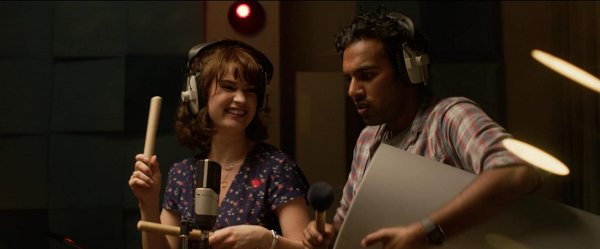
Das Boot, uncut TV series (282 min).
I need to watch this.View attachment 260131
This Land is Mine from 1943 with Charles Laughton, Maureen O'Hara, Walter Slezak, George Sanders and Kent Smith
The word propaganda, like so many things, has been tainted by its association with Nazi Germany, but its core meaning - promoting a particular, usually political, point of view - is also part of what we call freedom of speech.
It's dangerous when the state - as in Nazi Germany - controls speech and promotes only its point of view, hence the taint, but in a free society, where everyone advocates for his or her own beliefs, everyone, effectively, is propagandizing for his or her own viewpoint and ideas.
So it is as a compliment that I say, This Land is Mine is outstanding propaganda.
"Some town" in Europe is occupied by the Germans, but as the Germans did in several places, they wanted this to be a "soft" occupation where they collaborate with willing locals to leave a patina of self-governance in place. Many opportunistic and many just understandably scared locals go along, but a few resist by printing an underground newspaper while others physically resist through sabotage.
Cowardly mamma's boy and schoolteacher Charles Laughton plays by the new rules and looks the other way until his hero, the school's headmaster, is arrested for promoting "unacceptable" ideas at the school. Later, the headmaster is chosen as one of ten hostages to be executed by the Germans in retaliation for a murdered-by-the-resistance German soldier.
Laughton, meanwhile, stumbles upon the body of a collaborator, George Sanders, whose conscience drove him to suicide after he turned his fiancé's brother in for sabotage and the brother is killed trying to avoid arrest. Laughton, having found the body, is then arrested and charged with the murder of the collaborator. Adding to the complications, the collaborator's fiancé is a school teacher, Maureen O'Hara, with whom Laughton has been secretly in love.
This brings Laughton into direct conflict with the town's Nazi overseer beautifully played by Walter Slezak. Slezak is no cardboard Nazi thug. He's an educated man who quotes and clearly respects the leading philosophers of Western Civilization; a man who would prefer not to use force, not to kill the innocent. But he is also a shrewd and, when necessary, ruthless Nazi willing to kill ten innocent locals in retaliation for one murdered German soldier - order must be maintained.
Slezak doesn't want to have Laughton put on trial, but if he must be tried and found guilty of murder to maintain the fiction that the collaborator's death wasn't a suicide, then, so be it. Having the public know that collaborators are committing suicide over guilt is not in the Nazi's interest.
It takes two thirds of this better-than-average WWII propaganda film to get to this point, but then it only gets much, much better.
With his fears almost realized, Laughton, on trial in an all but rigged court for a murder he didn't commit, finds his inner fortitude, in part, when he sees, from his jail cell awaiting trial, his former headmaster executed in the prison's yard by the Nazis.
In dramatic courtroom fashion, with the prosecutor screaming to have his defense speech shut down, Laughton - disheveled, a bit nervous, but clearly not scared anymore - quietly and methodically exposes and dissects the evil of the Nazi occupation, the hypocrisy of the collaborators and his own cowardice to date.
It's not only a speech of hammering logic, it's a tour-de-force acting performance as you forget everything else as this fat, rumpled and awkward man single-handedly eviscerates all the evil fictions holding the town in its grip. And just when you think he has nothing left, this shy man, who's never expressed romantic love or passion for another in his entire life, in open court, declares his love for O'Hara and, at this point, you realize she's a lucky woman.
But there's still a little more movie left. Despite being knocked back on their heels with their immorality exposed by Laughton, Nazis are gonna Nazi, so they respond with brutal force. And Laughton is given one last moment before the inevitable, which he uses to teach his students the value of keeping the ideals of freedom and individual liberty alive in your head and heart even if all around you others are trying to stomp them out. Basically, he teaches that a book can be burned, but an idea can't be removed from your mind.
Is it propaganda? Sure, and This Land is Mine should be darn proud of it.
I owe a hat tip to @Worf for an outstanding recommendation.
I started watching BLOOD ON THE MOON yesterday and need to finish it (got interrupted when the BF came home). I was quite impressed as it was a great story with excellent acting from Mitchum and Preston. And of course, Walter Brennan, who I love in every performance he does.Blood on the Moon (1948) with Robert Mitchum, Barbara Bel Geddes, and Robert Preston. It's directed by Robert Wise so we see a western noir. High contrast lighting, corruption in seats of power, and a lead character who can't seem to get a fair shake from either the law or the crooks.
Or can he?
Preston is completely Preston, projecting past the foyer and popcorn machine, but at the same time delivering 100% of his performance.
NB: there is a fist fight in a saloon, about two-thirds of the way through, and it is astonishingly brutal. It goes on a long time.
PS: The Last Jedi, via Disney+. Fun for a Friday night brain.
